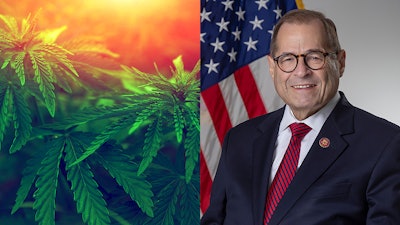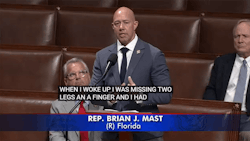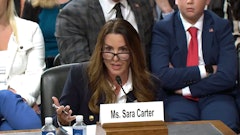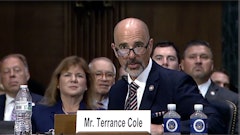
As anticipation continues for President Donald Trump’s decision on cannabis rescheduling, one of the longest-serving U.S. House members is creating new industry shockwaves through legislation to more broadly legalize the plant.
Rep. Jerry Nadler, D-N.Y., one of the top Democrats serving on the U.S. House Judiciary Committee, reintroduced the Marijuana Opportunity, Reinvestment and Expungement (MORE) Act on Aug. 29. The 91-page legislation, now in its fourth rendition, would federally legalize cannabis by removing it entirely from the Controlled Substances Act (CSA).
Coinciding with this legislative proposal, Trump is entertaining an executive proposal to reclassify cannabis from a Schedule I to Schedule III drug, a process that was initiated under former President Joe Biden’s administration but has been stalled since early January.
Under Nadler’s vision, not only would cannabis be decriminalized, but the MORE Act also intends to provide expungements for individuals with certain cannabis-related offenses as well as create reinvestment opportunities for those most affected by prohibition policies.
“As more states continue to legalize marijuana and public support increases, federal laws must catch up and reverse failed policies criminalizing marijuana,” Nadler said in a press release provided to Cannabis Business Times. “It is long past time to decriminalize marijuana at the federal level, expunge marijuana convictions and facilitate resentencing, while reinvesting in the communities most adversely impacted by the war on drugs.”
The U.S. House twice passed previous versions of the MORE Act, most recently in April 2022, when lawmakers cast a partisan vote, 220-204, entirely along party lines.
Most recently, the legislation attracted 95 co-sponsors in the last Congress but failed to gain any traction in the Republican-controlled lower chamber.
In this week’s reintroduction, Nadler filed the MORE Act with 39 original co-sponsors, including Reps. Dina Titus, D-Nev., and Ilhan Omar, D-Minn.—the Democratic Party’s co-chairs for the bipartisan Congressional Cannabis Caucus—and Rep. Nydia Velázquez, D-N.Y., the ranking member of the House Committee on Small Business.
“It’s time to modernize our laws to reflect the reality of cannabis use in the United States, recognize the legitimate industry that has emerged, and fully embrace the medical benefits of the plant,” Titus said. “The federal government must catch up to the states, and this bill provides a framework to end the failed war on drugs while supporting communities and businesses nationwide.”
The legislation comes as 24 states and Washington, D.C., have legalized adult-use cannabis, while 40 states have legalized medical cannabis.
Nadler first introduced the MORE Act in 2019, when he helped advance the legislation as then-chair of the House Judiciary Committee. The legislation attracted a 228-164 floor vote for passage in the final month of the 116th Congress.
However, Rep. Jim Jordan, R-Ohio, as the current chair of the Judiciary Committee, remains a blockade for the legislation’s advancement this Congress: He voted against the MORE Act in 2020 and 2022.
In addition to legalizing cannabis in the U.S., the MORE Act would impose a progressive federal excise tax on cannabis sales that would start at 5% for the first two years of implementation and increase to 8% by the fifth year. This tax revenue would, in part, be reinvested in disproportionately impacted communities and adversely affected individuals hoping to participate in the marketplace.
The cannabis tax revenue would go into an “Opportunity Trust Fund,” from which 60% would go to the U.S. Attorney General’s office to carry out portions of the Omnibus Crime Control and Safe Streets Act of 1968, which is designed to assist state and local governments in reducing the incidence of crime and to increase the effectiveness, fairness and coordination of law enforcement and criminal justice systems at all levels of government.
According to Nadler’s office, the MORE Act also:
- Decriminalizes marijuana at the federal level by removing the substance from the Controlled Substances Act. This applies retroactively to prior and pending convictions and enables states to set their own policy.
- Requires federal courts to expunge prior convictions, allows prior offenders to request expungement, and requires courts, on motion, to conduct re-sentencing hearings for those still under supervision.
- Authorizes the assessment of a 5% sales tax on marijuana and marijuana products to create an Opportunity Trust Fund, which includes three grant programs:
- The Community Reinvestment Grant Program: Provides services to the individuals most adversely impacted by the war on drugs, including job training, re-entry services, legal aid, literacy programs, youth recreation, mentoring and substance use treatment.
- The Cannabis Opportunity Grant Program: Provides funds for loans to assist small businesses in the marijuana industry that are owned and controlled by socially and economically disadvantaged individuals.
- The Equitable Licensing Grant Program: Provides funds for programs that minimize barriers to marijuana licensing and employment for the individuals most adversely impacted by the war on drugs.
- Opens up Small Business Administration funding for legitimate cannabis-related businesses and service providers.
- Provides non-discrimination protections for marijuana use or possession, and for prior convictions for a marijuana offense:
- Prohibits the denial of any federal public benefit (including housing) based on the use or possession of marijuana, or prior conviction for a marijuana offense.
- Provides that the use or possession of marijuana, or a prior conviction for a marijuana offense, will have no adverse impact under the immigration laws.
- Requires the Bureau of Labor Statistics to collect data on the demographics of the industry to ensure people of color and those who are economically disadvantaged are participating in the industry.
“For too long, communities of color have carried the weight of unfair marijuana laws that fueled incarceration and denied people opportunity,” Velázquez said. “The MORE Act is about justice, about giving people a second chance, and about making sure small businesses and workers in these communities can share in the benefits of legalization.”
The legislation is supported by a broad coalition of civil rights, criminal justice, drug policy, and immigration groups, including: the Leadership Conference on Civil and Human Rights, Drug Policy Alliance, NORML, Better Organizing to Win Legalization, Minorities for Medical Marijuana, the Center for American Progress, and Students for Sensible Drug Policy, among others.
“As states continue to move away from their failed experiments with cannabis prohibition, it is incumbent on Congress to resolve the growing conflict between state and federal law and do everything it can to repair the damage caused by nearly a century of disastrous criminalization policies,” NORML Political Director Morgan Fox said. "This legislation embodies the wishes of more than two-thirds of the American public and will create a federal cannabis framework that respects states’ rights and is focused on science, pragmatism and justice.”



























